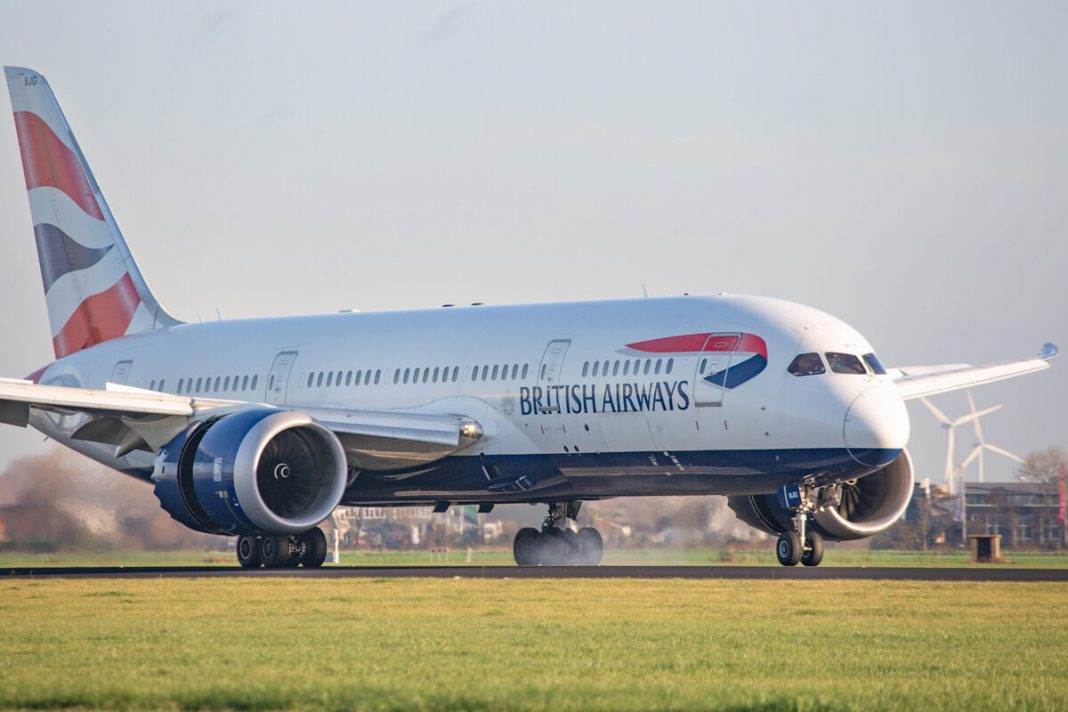Environmental discourses are becoming increasingly prevalent in the airline industry. As such, carriers are looking to develop more sustainable aviation technology. British Airways is one such airline. Its fleet’s efficiency has recently received a boost in the form of the premature retirement of its Boeing 747 aircraft. Now, it is looking to accelerate the development of hydrogen-powered flight.

Collaboration with an industry leader
In a press release published earlier today, British Airways announced its intention to “speed up the switch to hydrogen-powered passenger aircraft.” It will do so through a partnership with ZeroAvia, a “leading innovator in decarbonizing commercial aviation.” Through remote work, it plans to explore the concept of utilizing zero-emission hydrogen fuel with industry experts.
The partnership will come under the wider umbrella of the International Airlines Group’s (IAG) ‘Hangar 51’ accelerator program. This scheme looks to assist smaller start-ups worldwide. It does so by giving them the opportunity to test and develop their projects on a larger scale within IAG’s operations.
The partnership is an exciting proposition for ZeroAvia. Its Head of Europe, Sergey Kiselev, stated that:
“ZeroAvia’s mission is to accelerate the world’s transition to truly zero emissions flight and we believe hydrogen is the best way to quickly and practically achieve this.”

Successful test flight
In September 2020, ZeroAvia made a significant step towards realizing its goal. At this time, it saw a six-seat Piper Malibu single-engine turboprop aircraft depart under hydrogen-power from Cranfield Airport in Bedfordshire, UK. The aircraft, which bears the registration G-HYZA, had been retrofitted with a hydrogen fuel cell to enable the zero-emissions flight.
In this test flight, the aircraft successfully completed a full pattern circuit of the airfield, circling it twice. Moving forward, ZeroAvia is hoping its next hydrogen-powered trip will be a longer 250-mile jaunt from Scotland’s Orkney Islands. In the long-term, the innovator is looking to target 10-20 seat aircraft with a range of up to 500 miles.
Long-term commitment to sustainability
British Airways CEO Sean Doyle underlined the airline’s commitment to a sustainable future in the press release. Indeed, it has set itself the target of achieving net-zero carbon emissions by 2050. United Airlines also shares this aspiration for its operations. In terms of specific timescales, Mr Doyle stated:
“In the short-term, this means improving our operational efficiency and introducing carbon offset and removal projects. In the medium to longer-term, we’re investing in the development of sustainable aviation fuel and looking at how we can help accelerate the growth of new technologies such as zero-emissions hydrogen-powered aircraft.”

The project will also consider the passenger aspect of potential hydrogen-powered commercial flight. British Airways’ Director of External Communications & Sustainability, Louise Evans, stated that:
“During the partnership, as well as assessing the environmental advantages of the technology, we will also be exploring the operational, commercial and customer experience improvements that can be achieved.”
Despite recent improvements to commercial aircraft engines, the fact remains that they still consume large amounts of fossil fuel. It is perhaps unlikely that we will see a ‘hydrogen revolution‘ in the short-term. Nonetheless, the concept remains a fascinating prospect for environmentally-conscious aviation stakeholders.
[ad_2]
Source link


